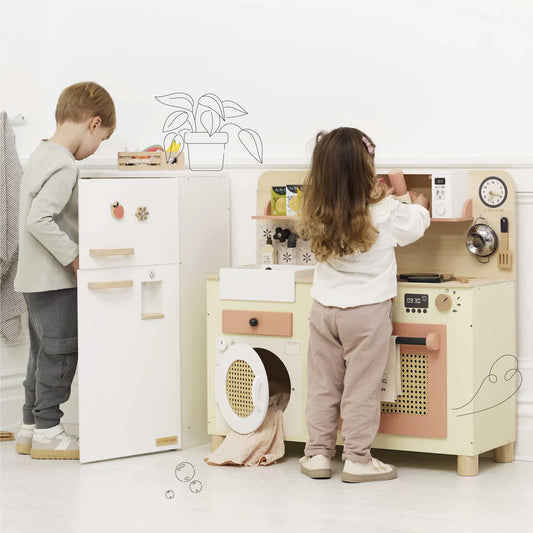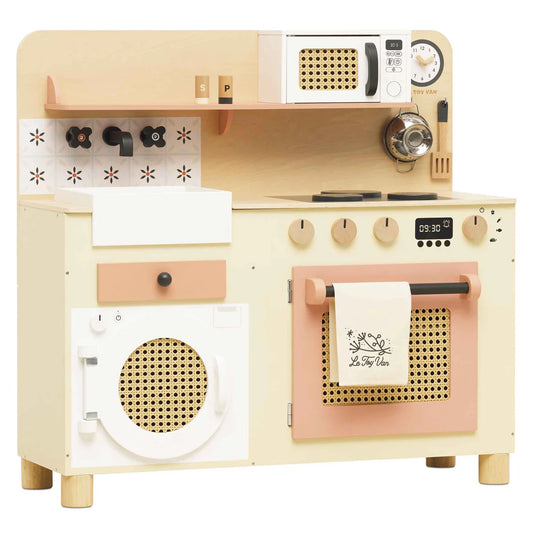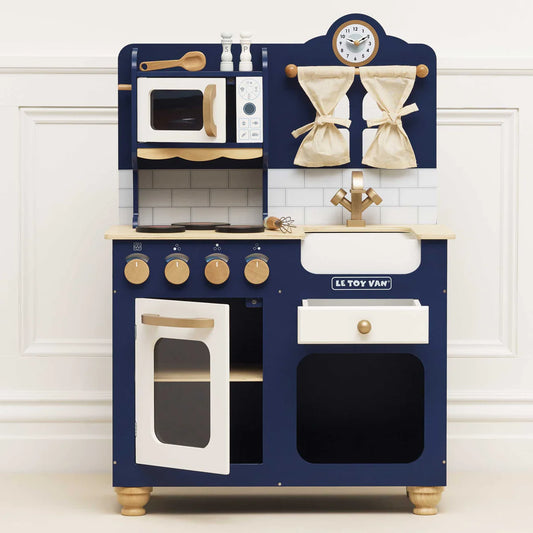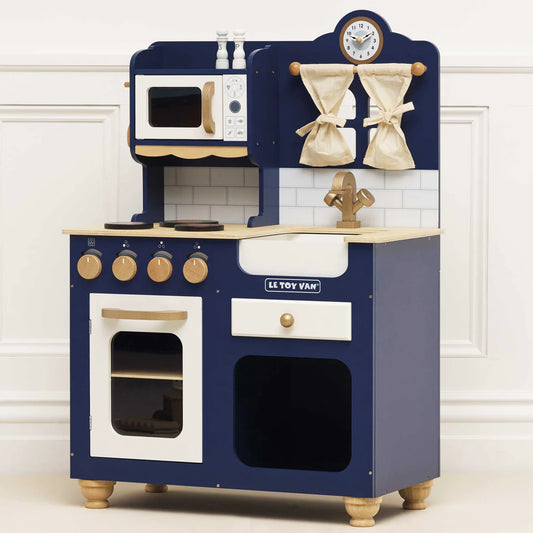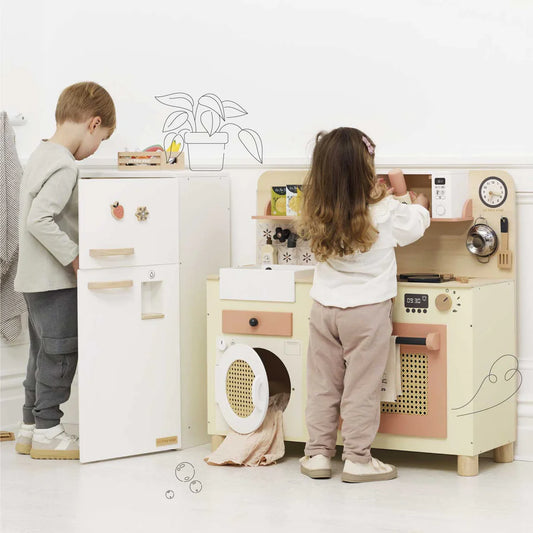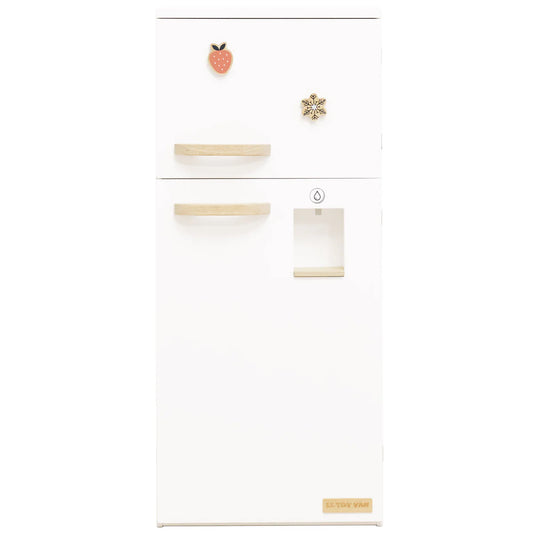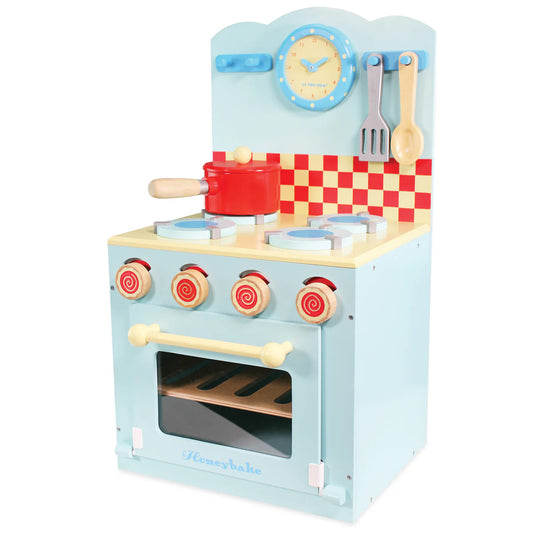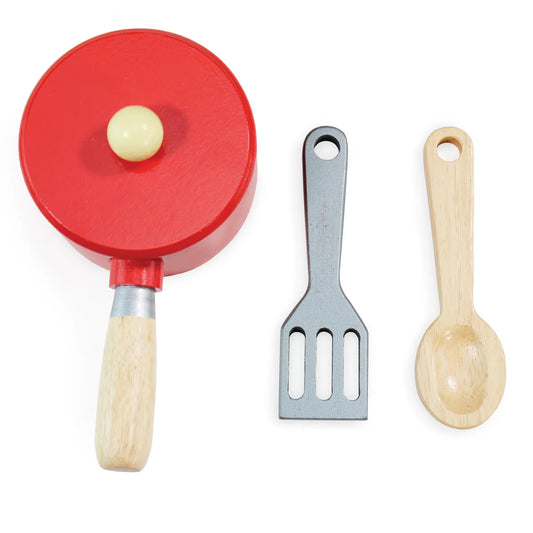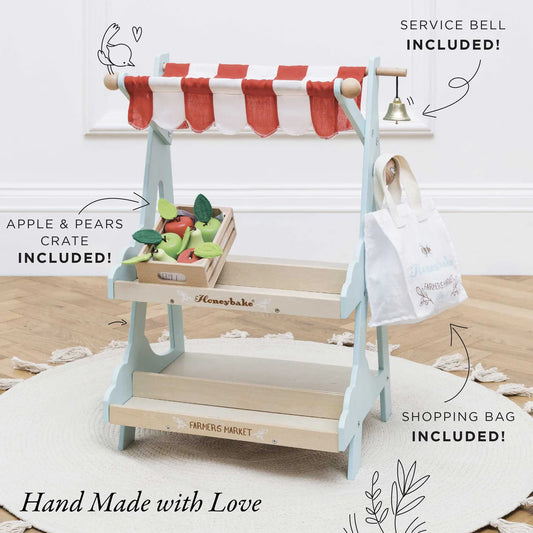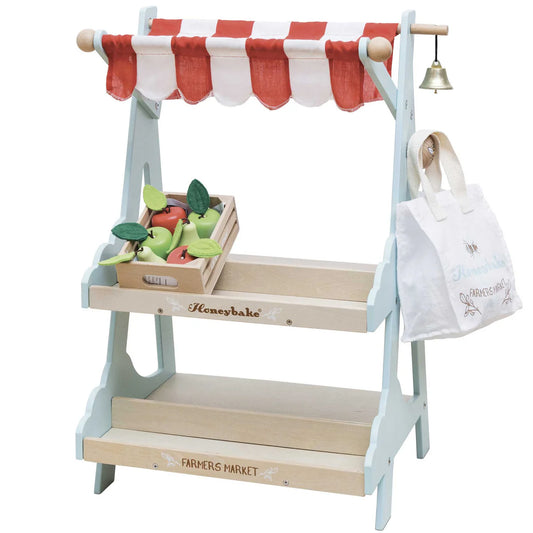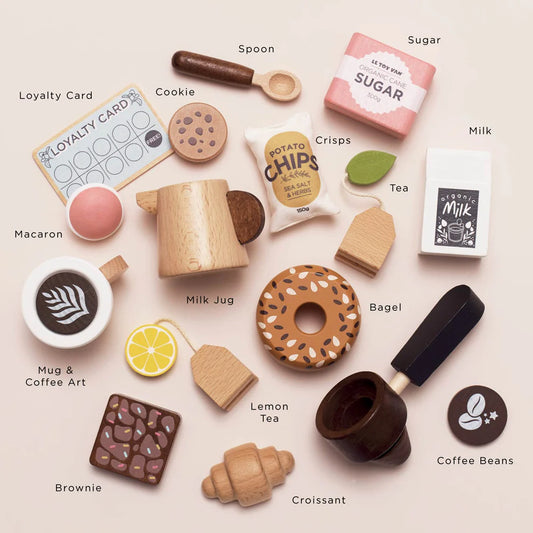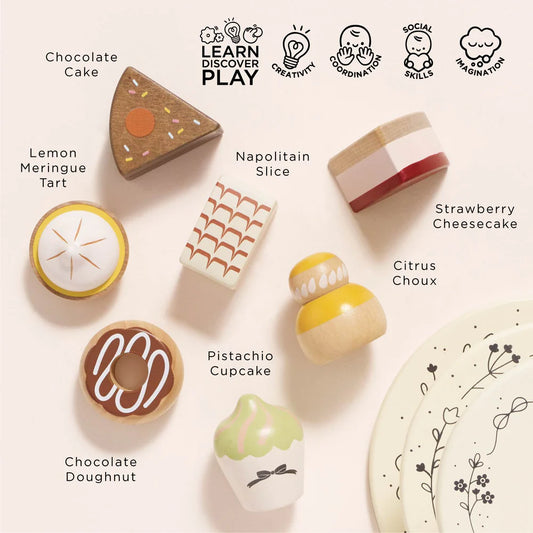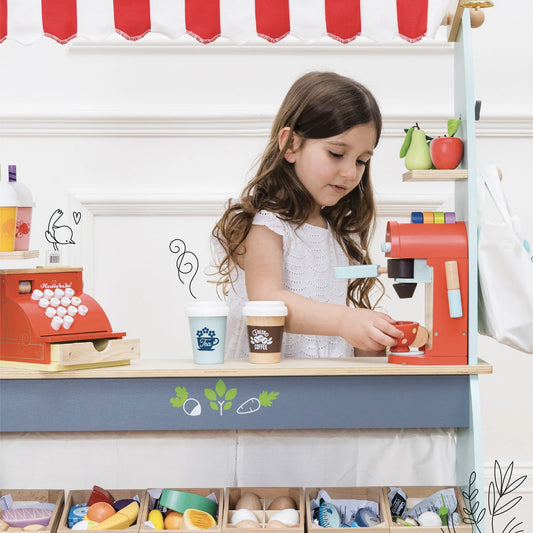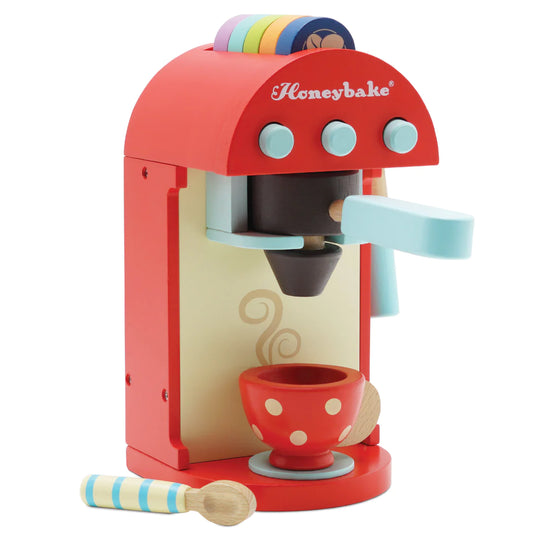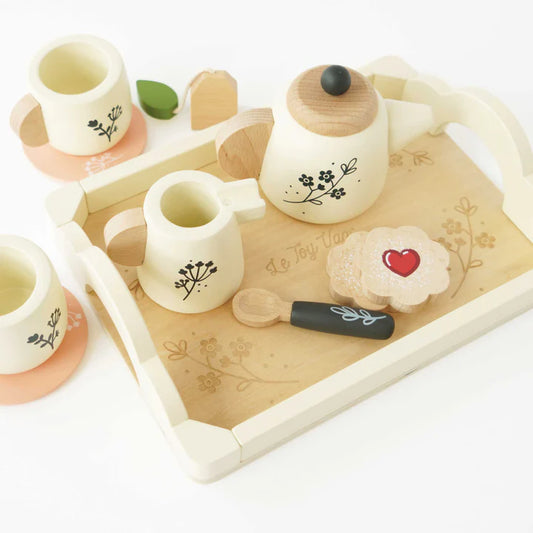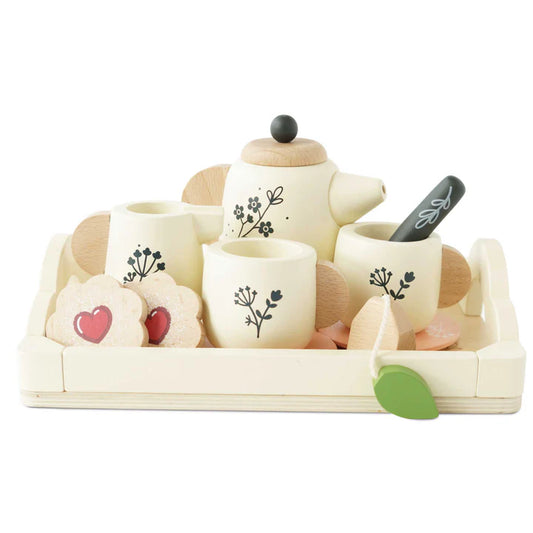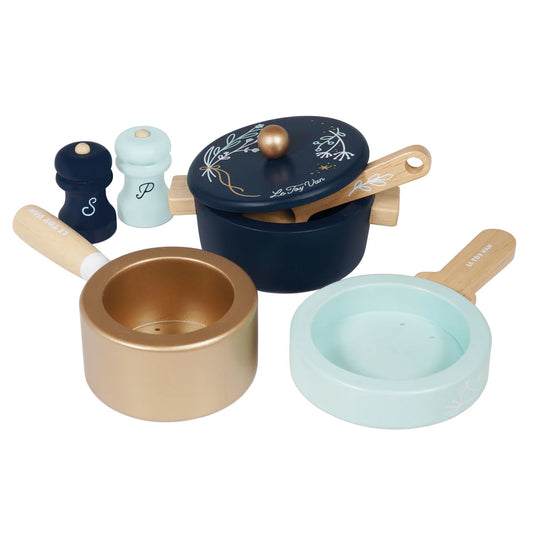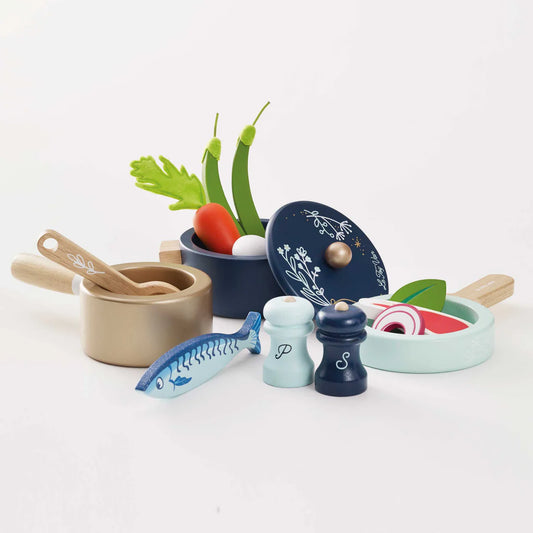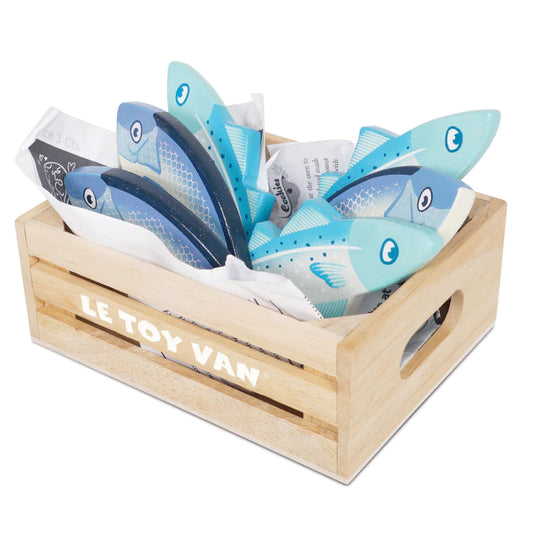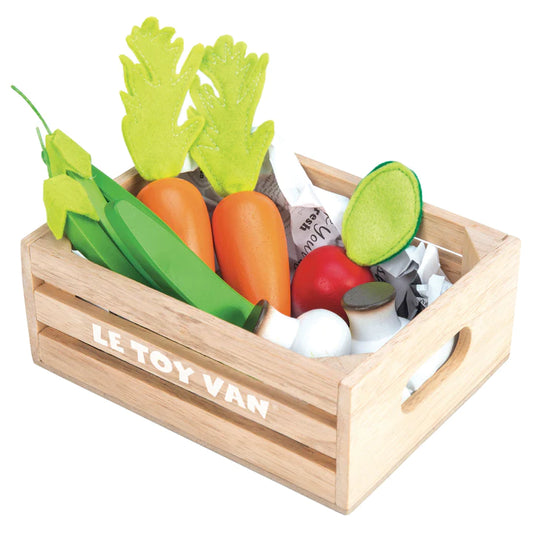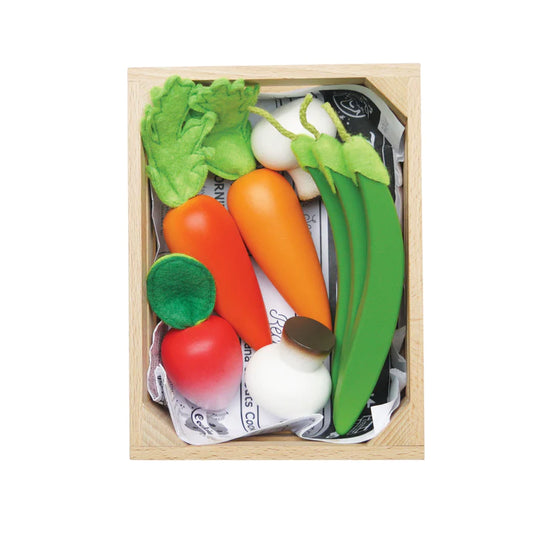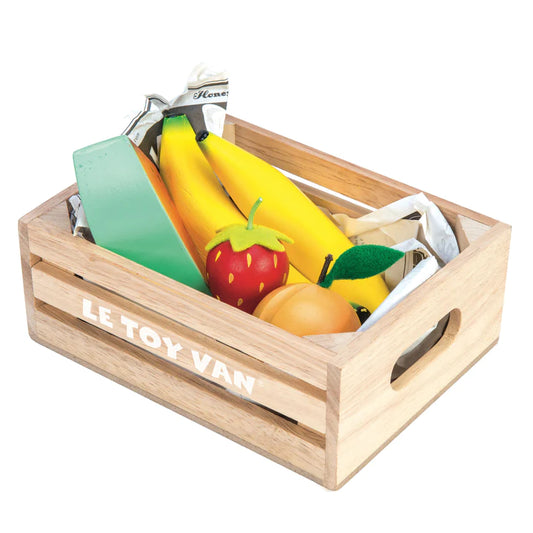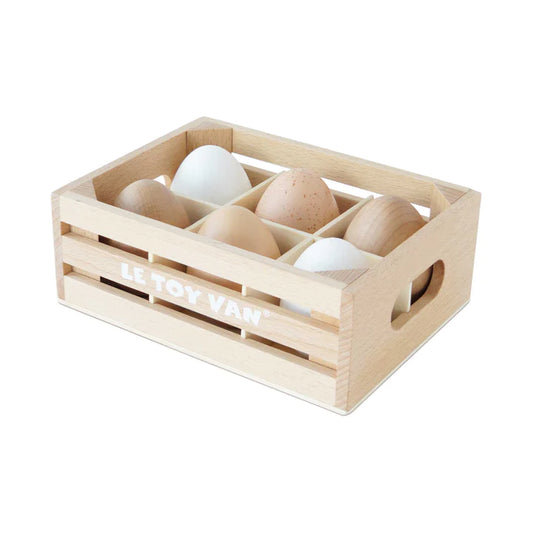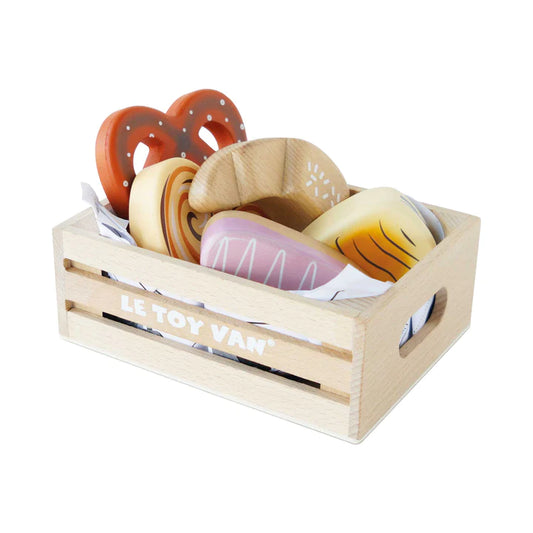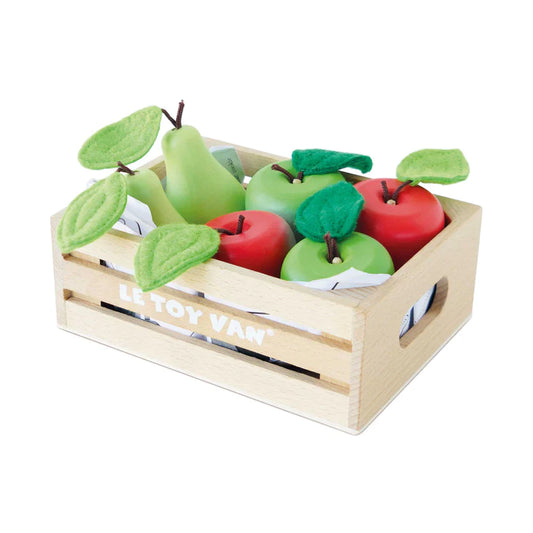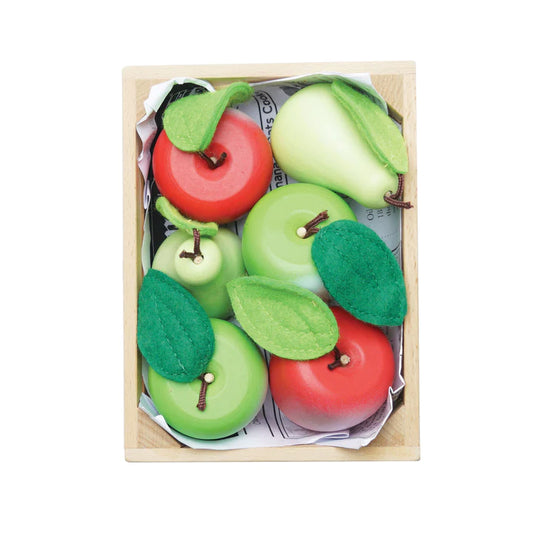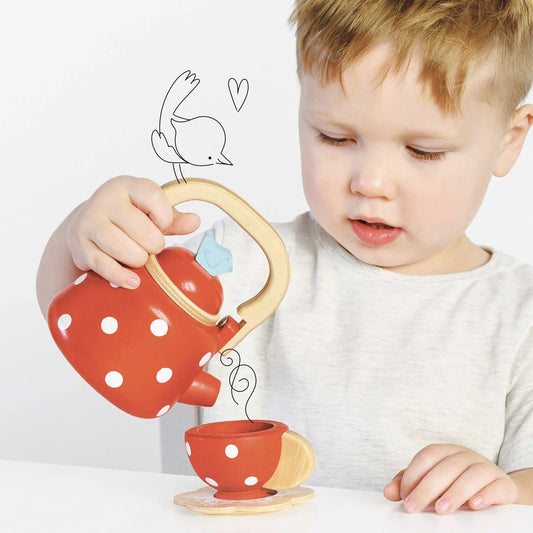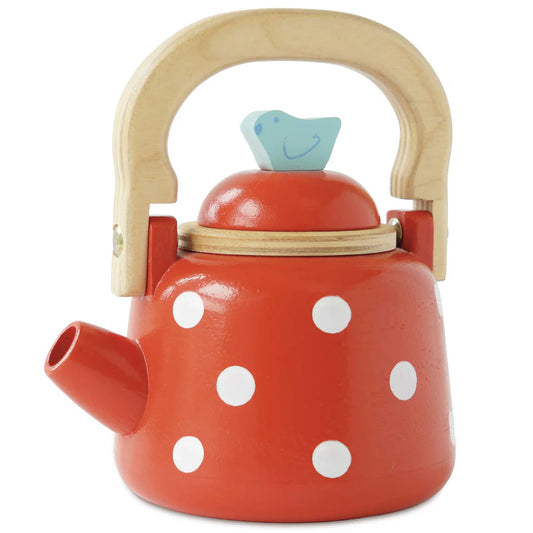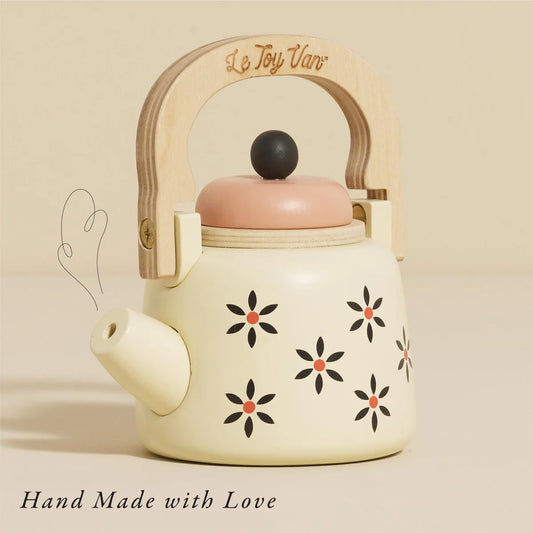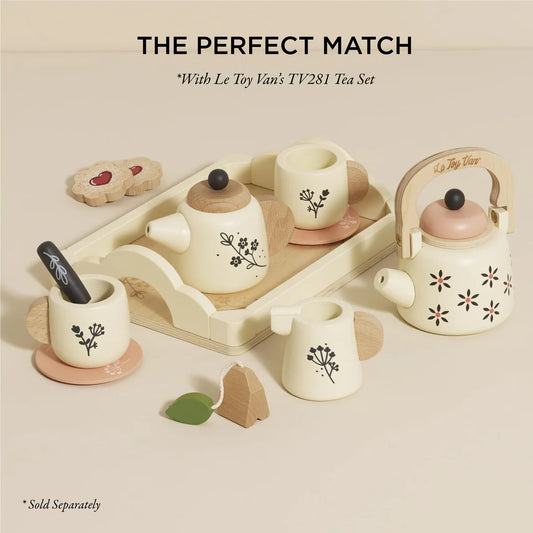Collection: Kitchens by Le Toy Van
The Magic of Wooden Kitchen Toys: Unlocking Creative Play for Children
Introduction
In a world filled with digital distractions, wooden kitchen toys offer a timeless and engaging way for children to explore their creativity. These charming toys not only provide hours of fun but also foster essential developmental skills. Let's delve into the myriad benefits of wooden kitchen toys and how they can transform playtime into a rich, imaginative experience.
The Appeal of Wooden Kitchen Toys
Wooden kitchen toys have a unique charm that plastic counterparts often lack. Their natural texture, durability, and aesthetic appeal make them a favorite among parents and children alike. Here are some reasons why wooden kitchen toys stand out:
- Durability: Made from sturdy materials, wooden toys can withstand rough play and last for generations.
- Safety: Free from harmful chemicals, wooden toys are a safer option for young children.
- Eco-Friendly: Being biodegradable and often sourced from sustainable materials, wooden toys are an environmentally conscious choice.
Creative Play Benefits
Wooden kitchen toys are more than just playthings; they are tools that nurture creativity and imagination. Here’s how they contribute to a child's development:
-
Imaginative Play: Wooden kitchen toys encourage children to create their own scenarios, whether it's cooking a feast for their stuffed animals or running a pretend café. This type of play helps develop storytelling skills and fosters a vivid imagination.
-
Fine Motor Skills: Handling small wooden utensils, pots, and food items helps children improve their dexterity and hand-eye coordination. These skills are crucial for tasks such as writing and self-care activities.
-
Social Skills: Playing with kitchen toys often involves role-playing and collaboration with peers or family members. This interaction enhances communication skills, teaches sharing, and builds empathy.
-
Problem-Solving: Setting up a kitchen, deciding on recipes, and managing pretend cooking tasks require children to think critically and solve problems. This kind of play promotes cognitive development and decision-making abilities.
-
Educational Value: Wooden kitchen toys can be used to teach basic math concepts (like counting and measuring) and introduce children to healthy eating habits. Parents can use these toys to explain the importance of nutrition and balanced meals.
Conclusion
Wooden kitchen toys are a delightful addition to any child's playroom. They offer a blend of fun and learning, helping children develop essential skills while indulging in creative play. By choosing wooden toys, parents can provide their children with a safe, durable, and environmentally friendly option that enriches their imaginative world.
-
Rattan Family Wooden Play Kitchen
Fournisseur :Le Toy VanPrix habituel £245.00 GBPPrix habituelPrix unitaire / par -
Oxford Wooden Play Kitchen
Fournisseur :Le Toy VanPrix habituel £190.00 GBPPrix habituelPrix unitaire / par -
Kitchen Freestanding Fridge Freezer
Fournisseur :Le Toy VanPrix habituel £110.00 GBPPrix habituelPrix unitaire / par -
Orginal Kitchen Oven & Cooker Set
Fournisseur :Le Toy VanPrix habituel £90.00 GBPPrix habituelPrix unitaire / par -
Market Stall
Fournisseur :Le Toy VanPrix habituel £70.00 GBPPrix habituelPrix unitaire / par -
Barista Café Shop
Fournisseur :Le Toy VanPrix habituel £48.00 GBPPrix habituelPrix unitaire / par -
Mixer Set and Accessories
Fournisseur :Le Toy VanPrix habituel £35.00 GBPPrix habituelPrix unitaire / par -
Three Tier Patisserie Cake Stand
Fournisseur :Le Toy VanPrix habituel £29.00 GBPPrix habituelPrix unitaire / par -
Wooden Toy Coffee Machine & Pods
Fournisseur :Le Toy VanPrix habituel £28.00 GBPPrix habituelPrix unitaire / par -
Tea Set & Tray
Fournisseur :Le Toy VanPrix habituel £27.00 GBPPrix habituelPrix unitaire / par -
Pots & Pans Kitchen Accessories
Fournisseur :Le Toy VanPrix habituel £22.50 GBPPrix habituelPrix unitaire / par -
Market Fish Wooden Play Food Crate
Fournisseur :Le Toy VanPrix habituel £17.00 GBPPrix habituelPrix unitaire / par -
Harvest Vegetables - Wooden Food Crate
Fournisseur :Le Toy VanPrix habituel £17.00 GBPPrix habituelPrix unitaire / par -
Fruits 5 a Day - Wooden Market Crate
Fournisseur :Le Toy VanPrix habituel £17.00 GBPPrix habituelPrix unitaire / par -
Farm Eggs - Wooden Market Crate
Fournisseur :Le Toy VanPrix habituel £17.00 GBPPrix habituelPrix unitaire / par -
Bakers Basket - Wooden Market Crate
Fournisseur :Le Toy VanPrix habituel £17.00 GBPPrix habituelPrix unitaire / par -
Apples & Pears Fruits - Wooden Market Crate
Fournisseur :Le Toy VanPrix habituel £17.00 GBPPrix habituelPrix unitaire / par -
Red Vintage Honeybake Wooden Kettle
Fournisseur :Le Toy VanPrix habituel £15.00 GBPPrix habituelPrix unitaire / par -
Vintage Kettle - Cream
Fournisseur :Le Toy VanPrix habituel £15.00 GBPPrix habituelPrix unitaire / par
